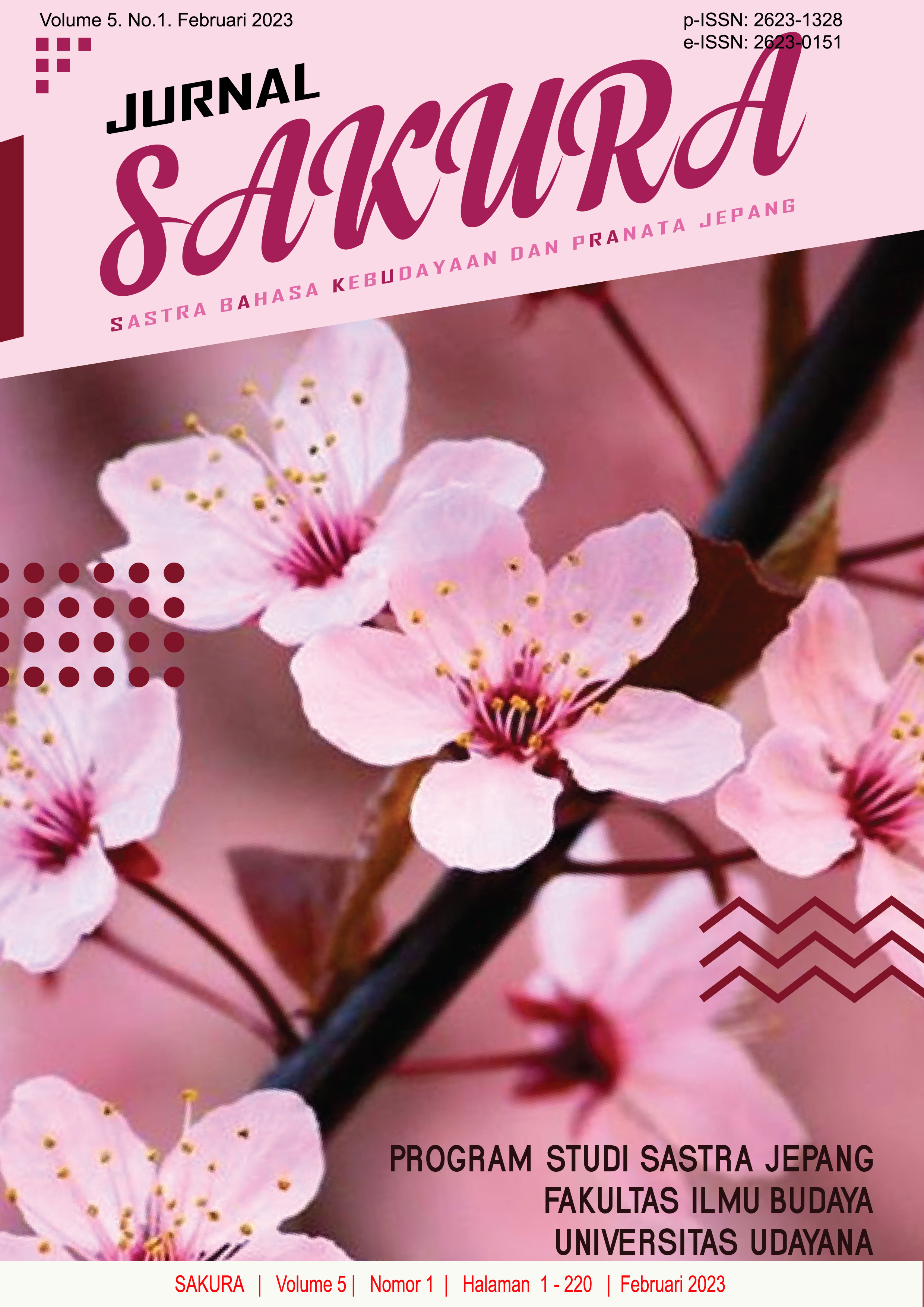Analisis Sejarah dan Perkembangan Perkeretaapian di Jepang
Abstract
This research discusses the history of Japanese railways and the factors causing the progress of railways in Japan. The research method used in this research is descriptive qualitative. The data collection technique used in this research is a literature study or literature review. The data in this research were taken from journals, books, documentation, internet and literature that discussed the topic being researched. The results of this study are the history of Japanese railways starting in 1872 at the beginning of Japan's new era, namely the Meiji era. Japan learned the rail system from England. Initially, the railroads in Japan were under the auspices of one company, namely JNR, due to go into liquidation, Japan was forced to make JNR a private company, JNR changed its name to JR and is divided into 9 companies to this day. While the factor for the advancement of Japanese railways is Japan's long experience in the world of railways, which is more than 150 years, Japan dares to take risks in the development of railways, Japan is able to overcome competition with private railroad companies, and finally, the Japanese people are disciplined and punctual.
Downloads
References
Arikunto, S. (2019). Prosedur Penelitian. Jakarta: Rineka cipta.
Aritonang, N.A.K. (2017). “Berakhirnya Kejayaan Para Samurai”. Jakarta: Universitas Darma Persada
Darmadi, H. (2014). Metode Penelitian Pendidikan Sosial. Bandung: Alfabeta.
Denney, A. S., & Tewksbury, R. (2013). How to write a literature review. Journal of criminal justice education
Hikmah, W. (2012). “Kamikaze: Strategi Militer Jepang di Akhir Perang Dunia II”. Jakarta: Universitas Indonesia.
Imada, K (May 25, 2022) “Survey: Japan is the number one tourist destination in the world”. Retrieved from https://www.timeout.com/tokyo/news/survey-japan-is-the-number-one-tourist-destination-in-the-world-052522 (December 9, 2022)
Indrawan, R. & Yaniawati R.P. (2014). Metodologi Penelitian Kuantitatif, Kualitatif, dan Campuran Untuk Manajemen, Pembangunan, dan Pendidikan. Bandung: PT Refika Aditama
Jeff, K (September 17, 2016) “Memories of 1931 Mukden Incident remain divisive”. Retrieved from https://www.japantimes.co.jp/opinion/2016/09/17/commentary/memories-1931-mukden-incident-remain-divisive/ (December 20, 2022)
Kawai, Atsushi (October 13, 2022) Express Train to Industrialization: Japan’s First Railway Line. Retrieved from https://www.nippon.com/en/japan-topics/b06911/ (December 18, 2022)
Kominfo (September 26, 2022) Wapres Harapkan Diaspora Indonesia di Jepang Jadi Duta Negara untuk Jaga Hubungan Baik Indonesia – Jepang. Retrieved from https://www.kominfo.go.id/content/detail/44556/wapres-harapkan-diaspora-indonesia-di-jepang-jadi-duta-negara-untuk-jaga-hubungan-baik-indonesia-jepang/ (December 9, 2022)
Magdalena. (2022). “Peranan Pemerintah Jepang Dalam Membangkitkan Ekonomi Jepang Pasca Kekalahan Perang Dunia II”. Jakarta: Universitas Darma Persada.
Mega, I.D. (2020). “Restorasi Meiji Modernisasi Kehidupan Masyarakat Jepang”. Jakarta: Universitas Darma Persada
Ondi, S.M. (2022). Pemilihan Transportasi Kereta Api dan Mobil Pribadi di Jepang. Sumatera:
Ong, S. (2019). Seikatsu Kaizen. Jakarta: Gramedia
Onoda, S. (2015). A History of Railway Tunnels in Japan. Tanpa Kota: A History of Railway Tunnels in Japan.
Pamungkas. G.R.(2018). Invasi Jepang ke China (1937-1945). Jakarta: Universitas Darma Persada
Paris, E. (2011). The Secret History of The Jesuits. USA: Chick Publications
Quin Cho (July 14, 2020). Why Did Japan Attack So Many Southeast Asian Countries in World War II?. Retrieved from https://www.pacificatrocities.org/blog/why-did-japan-attack-so-many-southeast-asian-countries-in-world-war-ii (December 20, 2022)
Sriastuti, D. A. N. (2015). KERETA API PILIHAN UTAMA SEBAGAI MODA ALTERNATIF ANGKUTAN UMUM MASSAL. Bali: Paduraksa
Start, J (March, 2019) A History of Japanese Railways. Part 2: Post-WW2 Recovery. Retrieved from https://www.gaugemasterretail.com/magento/rightlines-article/history-of-japanese-railways-pt2.html (December 20, 2022)
Statista Research Department (April 25, 2022) Number of registered foreign residents living in Japan from 2011 to 2020. Retrieved from https://www.statista.com/statistics/687809/japan-foreign-residents-total-number/ (December 9, 2022)
Sugiyono. (2016). Metode Penelitian Kuantitatif, Kualitatif dan R&D. Bandung: Alfabeta.
Takahashi, N. (2019). Japanese National Railways’ Financing Schemes and Bankruptcy. Tokyo: J-STAGE
Tryvina, M. (2017). Pengaruh Politik Sakoku Jepang Terhadap Nasionalisme Masyarakat Jepang. Jakarta: Universitas Darma Persada
Verelladevanka, Adryamarthanino (January 15, 2022) Perang Boshin: Latar Belakang, Pertempuran, dan Akhir. Retrieved from https://www.kompas.com/stori/read/2022/01/15/120000279/perang-boshin-latar-belakang-pertempuran-dan-akhir?page=all (December 18, 2022)
Wahyudi, A.H & Sutanto, M.R. (2021). Pengembangan Karakter Ikari Shinji Dalam Anime Neo Genesis Evangeliom. Bali: Jurnal SAKURA
Wedagama, I D.R & Budiana, I M. (2022). “Faktor Keterlibatan Jepang Dalam Perang Dunia II Pada Film Rengou Kantai Shirei Choukan Yamamoto Isoroku”. Jurnal Sakura, Agustus 2022 V.4(2)













